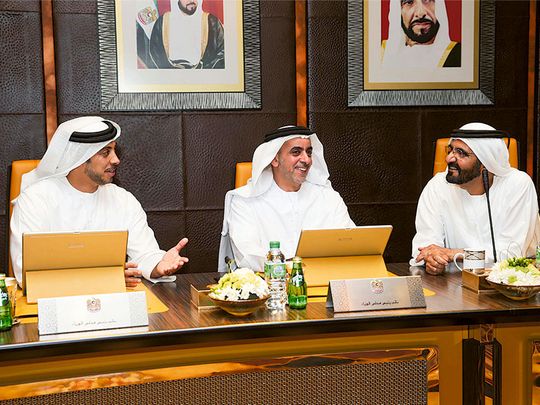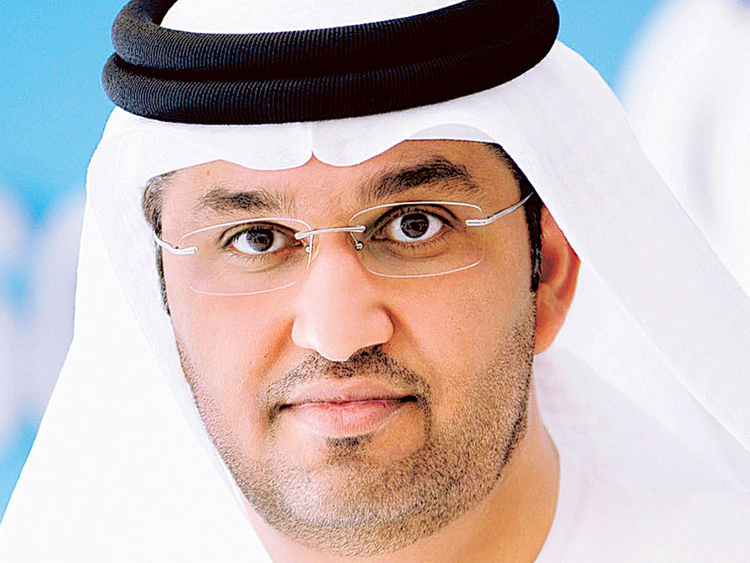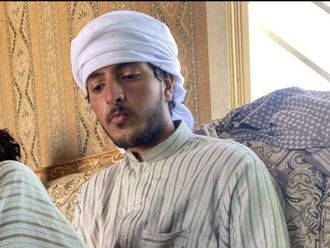
Abu Dhabi: The UAE Cabinet approved a host of initiatives to boost health-care services at federal and other levels and the establishment of a national unified database of patients’ medical records in the UAE.
The initiatives were approved at yesterday’s Cabinet meeting chaired by His Highness Shaikh Mohammad Bin Rashid Al Maktoum, Vice-President and Prime Minister of the UAE and Ruler of Dubai.
The initiative to establish the national unified database is one of the outcomes of the Cabinet’s Government Innovation Lab, chaired by Shaikh Mohammad last year during the Ministerial Retreat in Sir Bani Yas.
It aims to unify all medical records of patients in the UAE, facilitate movements of patients among health-care providers, as well as connect public hospitals and clinics. Providing up-to-date medical records is a necessity to improve health-care services provided in the UAE as it will contribute to ensuring an improved level of health care, eliminate duplication and reduce registration times, medication errors and the length of hospital stays. It will be implemented in the coming four years.
“Providing health-care services in the UAE is a joint work by federal, local governments and the private sector. Improving health-care services will never stop, as the health of our citizens is our utmost priority,” Shaikh Mohammad said.
He added, “Building a high-quality health-care system and providing the best services to patients require streamlining efforts in this sector. Today, we announce a unified national medical record to facilitate the health-care services and provide up-to-date medical data. We want health-care services to reach patients no matter where they are in the country, to realise a high quality standard of living to our people and ensure their health requirements are met.”
The Cabinet also approved an initiative on mobile health-care services programmes to provide services in remote areas, especially for senior citizens. The mobile health-care services will focus on home-care services and outpatient speciality clinics.
It reflects the UAE government’s strategy to improve quality of services and accessibility for all members of the community. The mobile health care is an indispensable component of the services to ensure the entire community benefits from the system, especially those living in remote areas.
The Cabinet discussed other topics on the agenda, and endorsed amending the Cabinet Decree on Government Financial Policy Coordination Council. The amendment will include adding more items to Decree No 26 of 2011 on the Council that will streamline the scope of work of the council to boost competitiveness in various sectors in the country.
It also endorsed the EU-UAE visa waiver agreement, whereby Emiratis will no longer require a visa for short stays in Schengen countries. In addition,
the identity card number will be the unified patient number on the central database that contains all health information about each patient.
The Cabinet approved the amendment of the organisational structure of the National Media Council (NMC) and its Board in line with government efforts to improve government work. Sultan Ahmad Al Jaber, Minister of State, will chair the new Board and the members will be representatives from the federal and local authorities concerned.
The amendment aims to streamline the work of the NMC to boost the international reputation of the UAE, raise awareness about its achievements in various sectors such as playing a global role in diplomacy, humanitarian and development aid, as well as hosting international organisations in the country.












